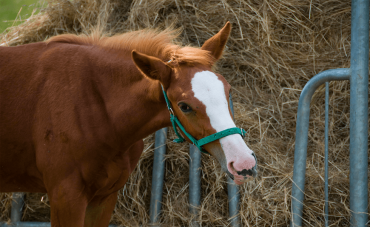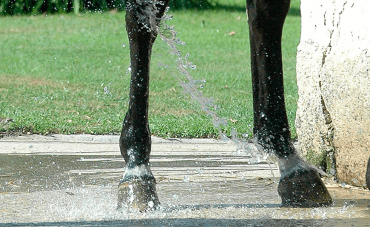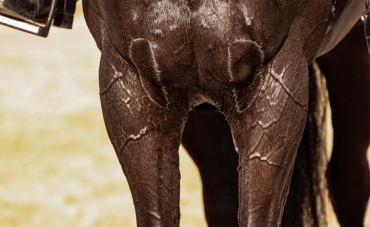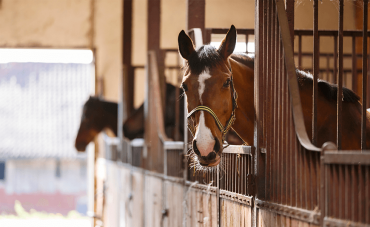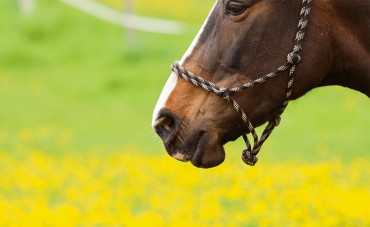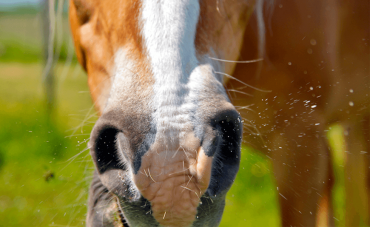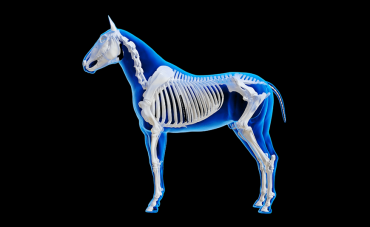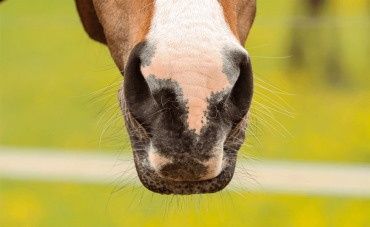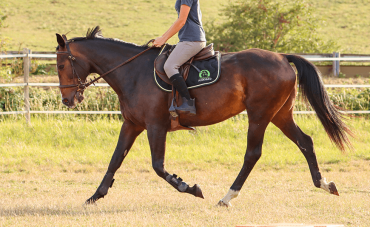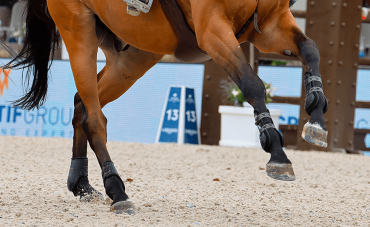As you may have noticed, we cover various topics related to your horse's orthopedic health and the well-being of its joints. In this article, we are going to discuss why it is important to care for your horse's flexibility and locomotor system.
What locomotion means?
We should begin by defining locomotion, which can be simply put as the ability to move. In our case, it is your horse's ability to perform various movements such as walking, trotting, galloping, and moving backward.
When riding a horse, you are aiming to develop different aspects:
1. Balance: Achieving balance involves engaging the hindquarters and supporting the front legs.
2. Amplitude: This pertains to the ground covered during a single stride.
3. Elasticity: Elasticity refers to the ability to be collected.
Of course, improving these aspects of a horse's movement requires a lot of work and effort. It is essential that your horse is in good health and well-fed to have the energy required for this work. However, none of these aspects will improve if the overall condition of your horse's locomotion, particularly its joints, is not in good shape.
Before proceeding further, it is important to note that for a non-working horse living in its natural habitat in a meadow, the state of the horse's locomotion significantly affects its quality of life.
What are the consequences of poor locomotion?
Now that we understand what is meant by "good horse locomotion," it is important to discuss the consequences of poor flexibility and the ability to move for a horse.
Before addressing the consequences of poor locomotion on your horse's daily work, we need to first talk about the effects of poor locomotion on the day-to-day life of a horse.
If the horse lives in a meadow or regularly goes to the paddock, it will spend the majority of its time moving for grazing, drinking, or seeking shelter from rain. If your horse's musculoskeletal system is not in good shape and causes discomfort or pain, these activities may no longer be possible. The effects of this reduction in activity and movement can be numerous.
Firstly, less movement will lead to a loss of muscle mass, worsening the horse's general condition and making it more sensitive to external factors such as weather and wet ground. The loss of muscle mass can also lead to poorer performance when your horse is working, as well as an increased risk of injury to joints and tendons.
If your horse has difficulty moving around, it may move less to eat and drink properly, which, in turn, can lead to more serious problems such as dehydration, colic, or ulcers, on top of weight loss.
We can delve a little deeper into what can affect a horse's work in case of a poor locomotor system. We all know the old saying "No foot, no horse." Musculoskeletal issues (asymmetry, lameness, etc.) will wear and tear your horse's feet, which can lead to additional problems, worsening the overall condition of your horse and its locomotor system. Therefore, remember to keep an eye on your horse's hooves, which can be both a consequence and a cause of musculoskeletal issues.
A horse having trouble with movement can adapt and "compensate" for it. This can affect many areas of its body. One such risk area is the horse's back. When your horse's back seems sore, it could be unrelated to the locomotion system, but it can also be an effect of problems affecting its legs.
Why does my horse's motor system deteriorate?
The main cause of musculoskeletal system deterioration is related to age. It is osteoarthritis. This is a common condition that worsens with age and usage, but it can also affect younger horses.
Another frequent condition that deteriorates the locomotor system of a horse is tendonitis. Tendonitis creates pain which can impact your horse's ability to move. Keep a close eye on the limbs that are more likely to develop this type of problem.
We mentioned it earlier, but please do not neglect your horse's hooves. Poor hoof condition can be caused by underlying musculoskeletal issues. Similarly, hoof problems, such as laminitis, can be the cause of orthopedic issues.
This goes without saying, but if you have any doubts regarding your horse's musculoskeletal system, we recommend that you consult your veterinarian as soon as possible, who will be able to carry out a check-up if necessary.
How to help my horse's locomotion?
To support your horse's motor system, you can take action on various levels.
In terms of work, it should be adapted to your horse's level and age to ensure the horse stays fit without being overworked.
As mentioned before, do not neglect your horse's hooves. Regular visits to the farrier will allow you to check your horse's balance, the growth of the hoof, and the general condition of the feet. To limit the risk of laminitis, remember to monitor the horse's diet and weight appropriately. Excess weight can worsen arthritis by overloading the joints.
If your horse is working, several factors can impact its locomotor system. First of all, it is essential to have equipment that fits your horse. A saddle that sits well on its back with an adapted shock absorber if necessary. Also, take extra care when using reins, whether on foot or on the horse, as incorrectly used or inadequate reins can negatively impact your horse's training.
Finally, try to provide your horse with an environment that is conducive to good locomotion. Work as much as possible on suitable ground. During riskier periods such as very cold weather or very hot summers, which result in harder ground, it is recommended to adjust the pace and exercises accordingly. Similarly, damp ground also increases the stress on joints and tendons.
If, despite all your efforts, your horse still has orthopedic problems, or if you want to support it during periods of increased risk (competition, important training, difficult environment, etc.), you can use feed supplements. They will provide support to your horse and limit discomfort linked to orthopedic problems.
We hope we have emphasized the importance of your horse's motor system or "locomotion." If you have any questions, do not hesitate to ask us on all our social media channels.

